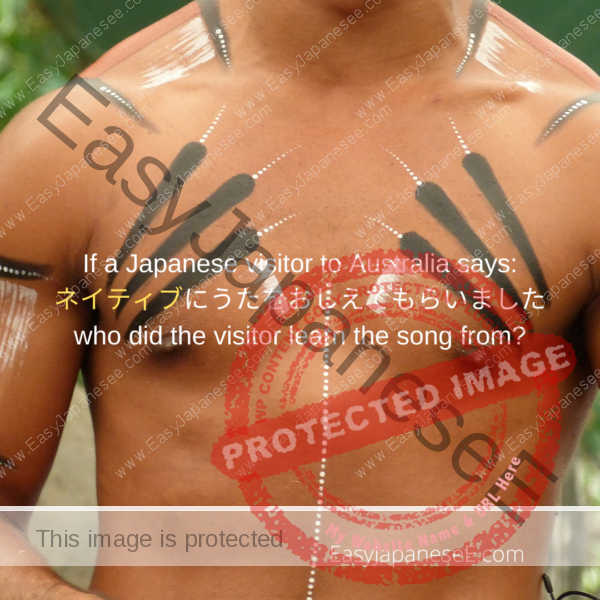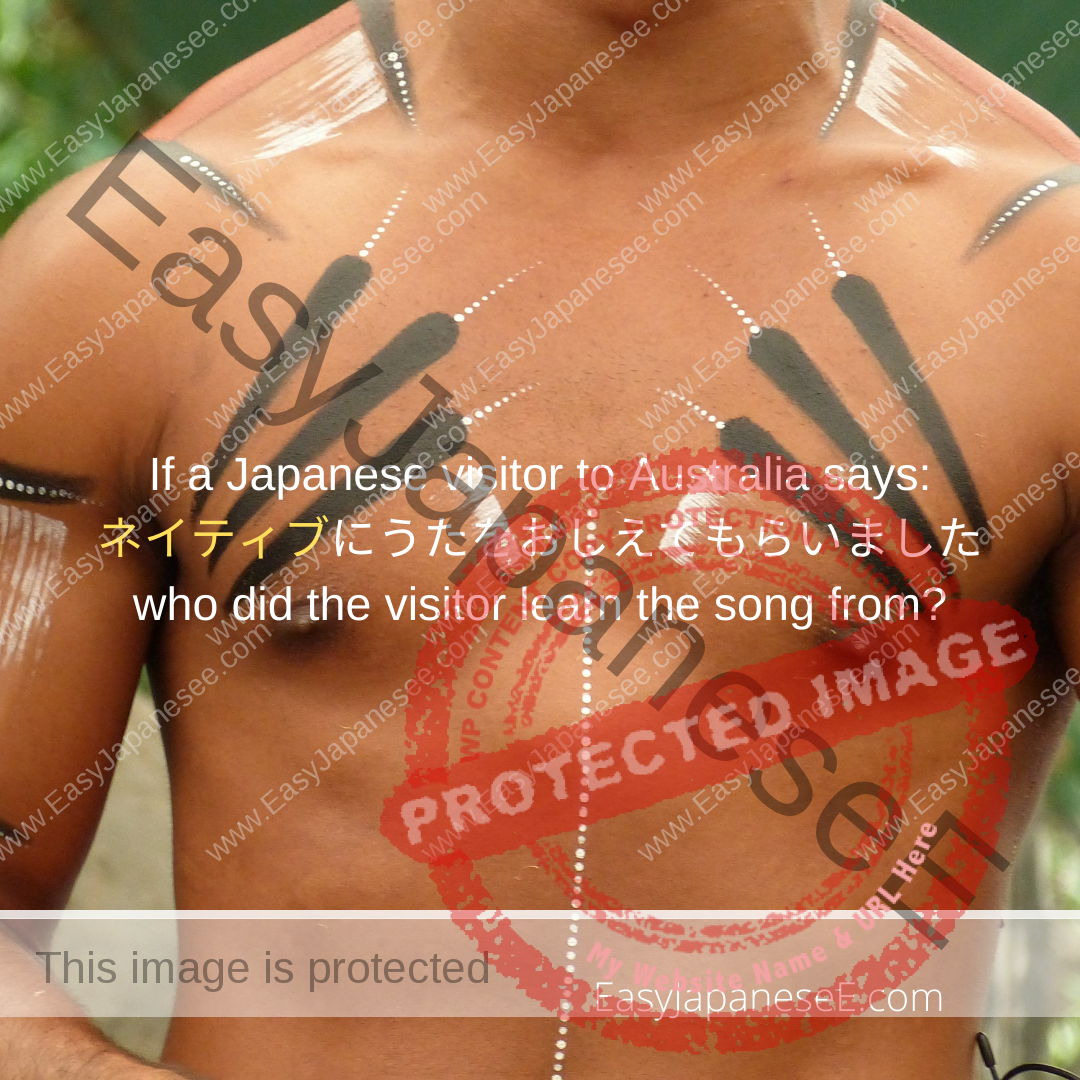
If a Japanese visitor to Australia says:
ネイティブにうたをおしえてもらいました
who did the visitor learn the song from?
I’ve recently opened another Twitter account to talk about English and/or English learning. And there, I can see the word “ネイティブ” everywhere. ネイティブ is the transliteration of “native” in English.
So if the visitor learned a song from a “native,” does that mean the visitor learned the song from an Aborigine?
No, ネイティブ in Japanese actually means a “native speaker,” usually of English. So ネイティブにうたをおしえてもらいました means the visitor learned a song from a native speaker of English!
It is similar to Australians shortening the word “cafe latte” to “latte.” If you order a cup of “latte” in Italy, you will get a cup of “milk” but in Australia “latte” is the name of Italian style milk coffee. In fact, when I asked for “cafe latte” in a coffee shop, they asked me if I wanted “caramel latte”!
If you liked this post, please share it with your friends through your social media accounts. Also, for more katakana words whose meaning is different from the original English word can be found in my Katakana words page.

